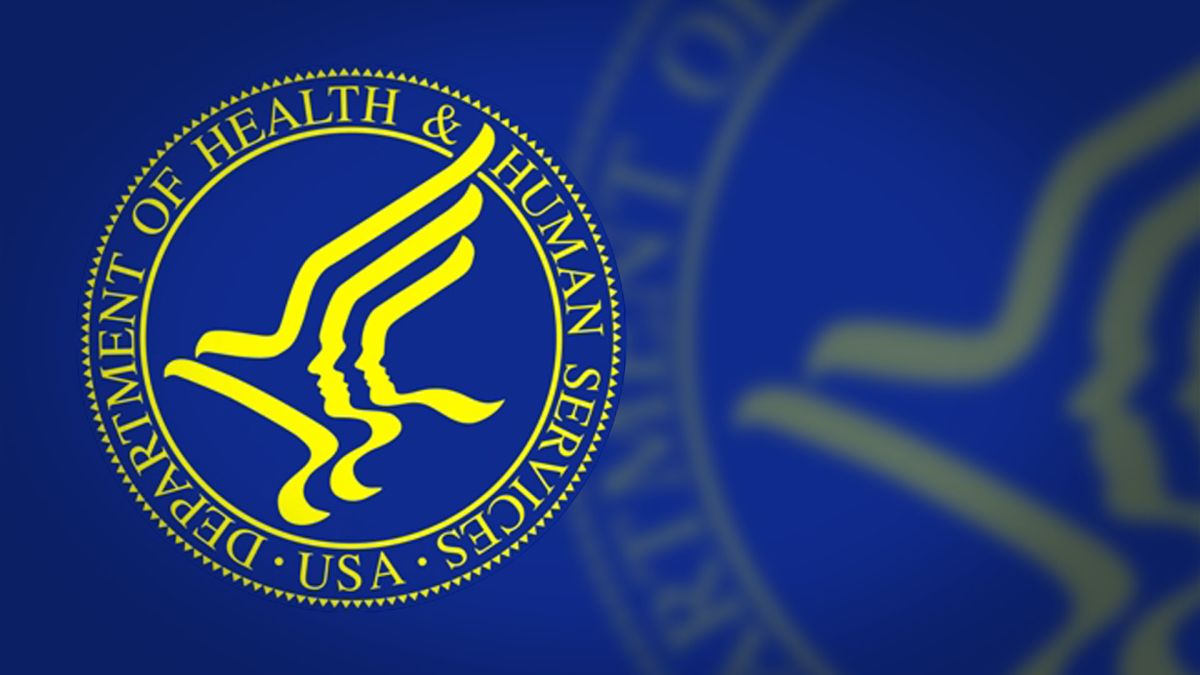The chief watchdog for the Department of Health and Human Services, being replaced as part of President Trump’s purge of inspectors general, told lawmakers on Tuesday that freedom from political intrusion is “a key safeguard for the programs we oversee.”
Christi Grimm, HHS’s principal deputy inspector general, spoke out for the first time since she was excoriated by the president for a report from her office that found “severe shortages” earlier this spring of supplies to help hospitals cope with the novel coronavirus pandemic.
Grimm defended that inquiry and its findings, telling members of the House Committee on Oversight and Reform that it was warranted, though she said the department has since addressed some of the problems it identified.
“Personally and professionally, I cannot let the idea of providing unpopular information drive decision-making in the work we do,” Grimm said, speaking calmly as the sole witness at a briefing conducted by videoconference. Calling independence “the cornerstone of what any office of inspector general does,” she said government watchdogs must “go right down the middle in providing facts and letting facts take us where they may.”
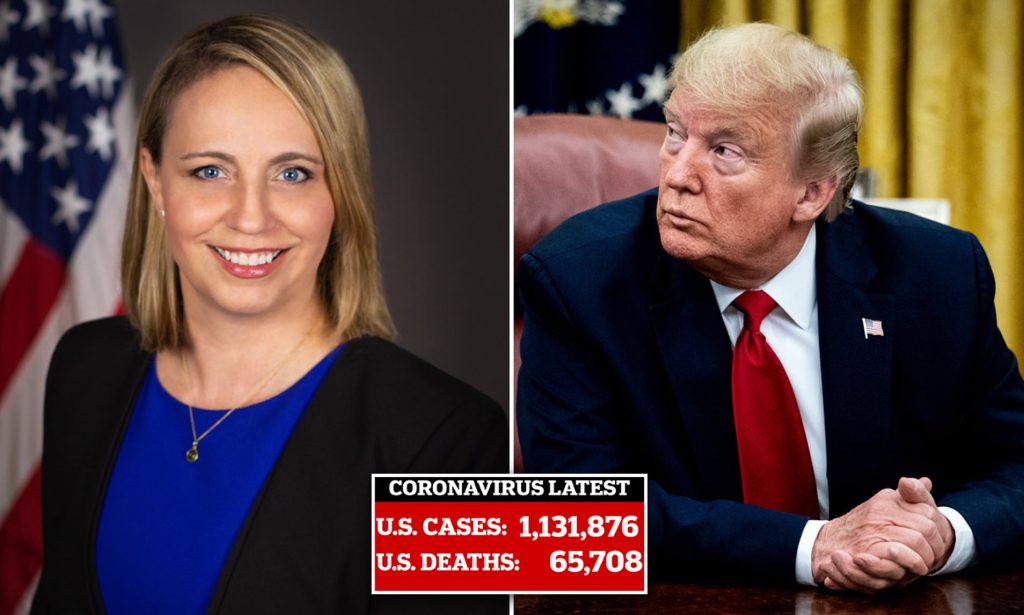
A career employee with the HHS inspector general’s office for more than two decades, Grimm said Tuesday that she and colleagues are pursuing 14 additional reviews of the department’s response to the pandemic, which has resulted in more than 1.6 million cases across the country of covid-19, the disease caused by the virus, and more than 98,000 deaths as of Tuesday.
Inquiries, she said, are exploring the operation of the Strategic National Stockpile of emergency supplies, the development and distribution of tests by the Centers for Disease Control and Prevention, and the process by which the Food and Drug Administration approved tests developed by outside laboratories. They also are delving into safety issues in nursing homes, which account for a disproportionate share of cases and deaths; the role of the HHS agency that runs Medicare and Medicaid; and further work on hospitals’ preparedness.
“We are operating as we did on May 1,” the date Trump announced a replacement for her as the office’s top official, Grimm said. “We are plowing ahead.”
The two-hour briefing was laced with partisanship, with members of the minority party repeatedly complaining that the committee should have convened in person for a formal hearing. They prodded Grimm to address issues beyond her office’s scope, such as why the pandemic shut down the U.S. economy. And they suggested that the findings on hospital shortages were inflated.
“I am deeply concerned with the flawed methodology,” said Rep. Jim Jordan (Ohio), the committee’s top Republican.
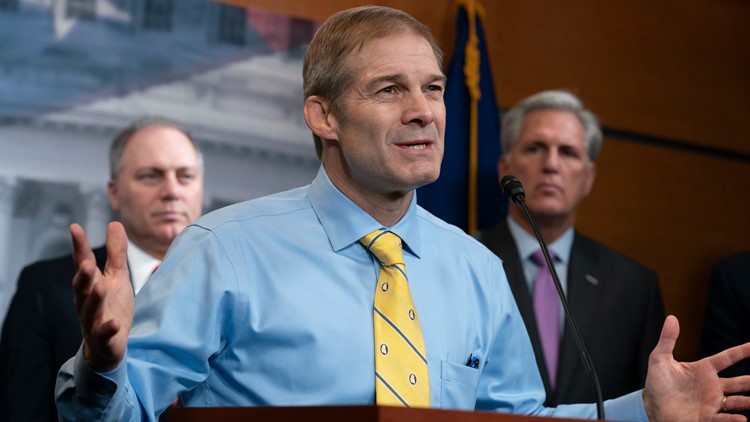
Democrats, meanwhile, condemned Trump’s reaction to the report. The committee’s chairwoman, Rep. Carolyn B. Maloney (N.Y.) said the president “personally attacked Ms. Grimm — and for no valid reason. . . . [I]t seems clear that he just wanted everyone to pretend there were no challenges in our health-care system.”
Rep. Jackie Speier (Calif.) said she was concerned that such White House reactions could prompt inspectors general to “feel they cannot provide any bad news without fearing they will lose their job.”
Inspectors general are internal watchdogs appointed to keep an independent eye on the agencies they are assigned to monitor. In Grimm’s case, she had been HHS’s principal deputy inspector general since January, a role that put her in charge of the office for which she has worked since 1999. She said her office monitors 300 programs in the sprawling department.
She still is in charge for now, until the assistant U.S. attorney Trump has nominated to replace her is confirmed. Grimm appeared to be speaking to the committee from her office, with an HHS flag and an American flag as a backdrop.
Her pending replacement makes her one of five inspectors general the president has deposed since early April. She and two others were removed on Friday nights, a time long favored by administrations eager to minimize attention to controversial White House actions.
The others the president removed were in charge of monitoring the intelligence community and the departments of Defense, Transportation and, most recently, State. Most of the five had been critical of the administration’s response to the pandemic. One had a role in a document that contributed to the House vote in mid-January to impeach the president.
Their removals have ignited outrage from congressional Democrats, good-government advocates and a few Republicans.
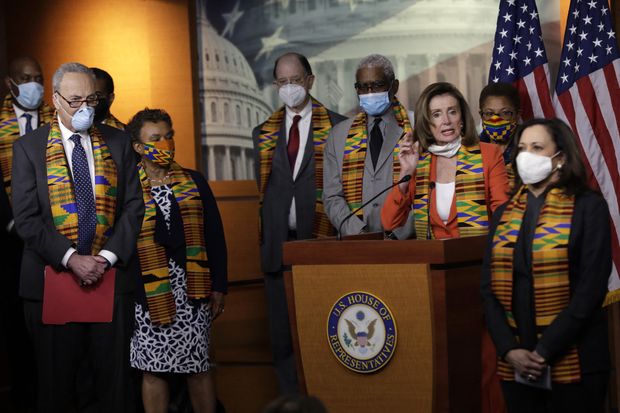
The issue spilled into the presidential race Tuesday, with a statement from the campaign of former vice president Joe Biden, the presumptive Democratic nominee.
“Instead of addressing the glaring, persistent shortages in testing and protective equipment identified by his own administration almost two months ago, Donald Trump has . . . shirked responsibility and blamed others instead of doing the work needed for us to stop this virus, save lives and safely re-open our economy,” said Kate Bedingfield, a Biden campaign spokeswoman.
Grimm was the lead author of the April 3 report that said hospitals were facing a “severe shortage” of testing kits and protective gear, hampering their ability to help contain the virus. The report was based on a survey of 343 hospitals in 46 states during five days in late March, and its conclusions contradicted White Houses assertions that the nation was well-fortified with virus-fighting necessities.
The survey found that some hospitals were so desperate for masks that they resorted to scrounging them from auto-body shops and nail salons. At least one hospital, it found, was making its own hand sanitizer by mixing gel used for ultrasounds with alcohol from a nearby distillery.
The day the report came out, Trump was asked about it during a White House coronavirus briefing. He flatly characterized it as “wrong” and asserted, “We are doing a better job [at testing] than anybody else in the world.”
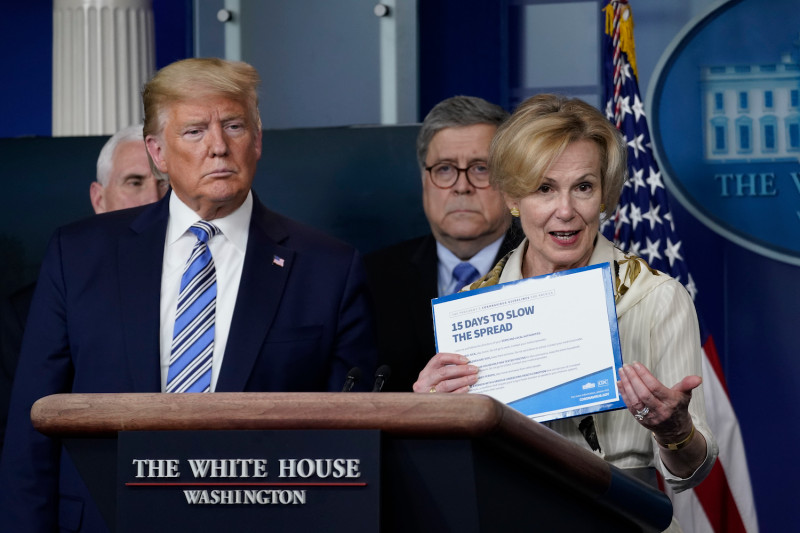
He demanded to know from reporters in the briefing room when Grimm had been appointed and focused on the fact that she had been in the office during the Obama administration, even though her tenure had begun nearly a decade before the start of that presidency.
Twenty-eight days later, Trump moved to replace her and nominated Jason Weida, an assistant U.S. attorney in Boston, as the permanent replacement for the previous HHS inspector general, who retired last year.

